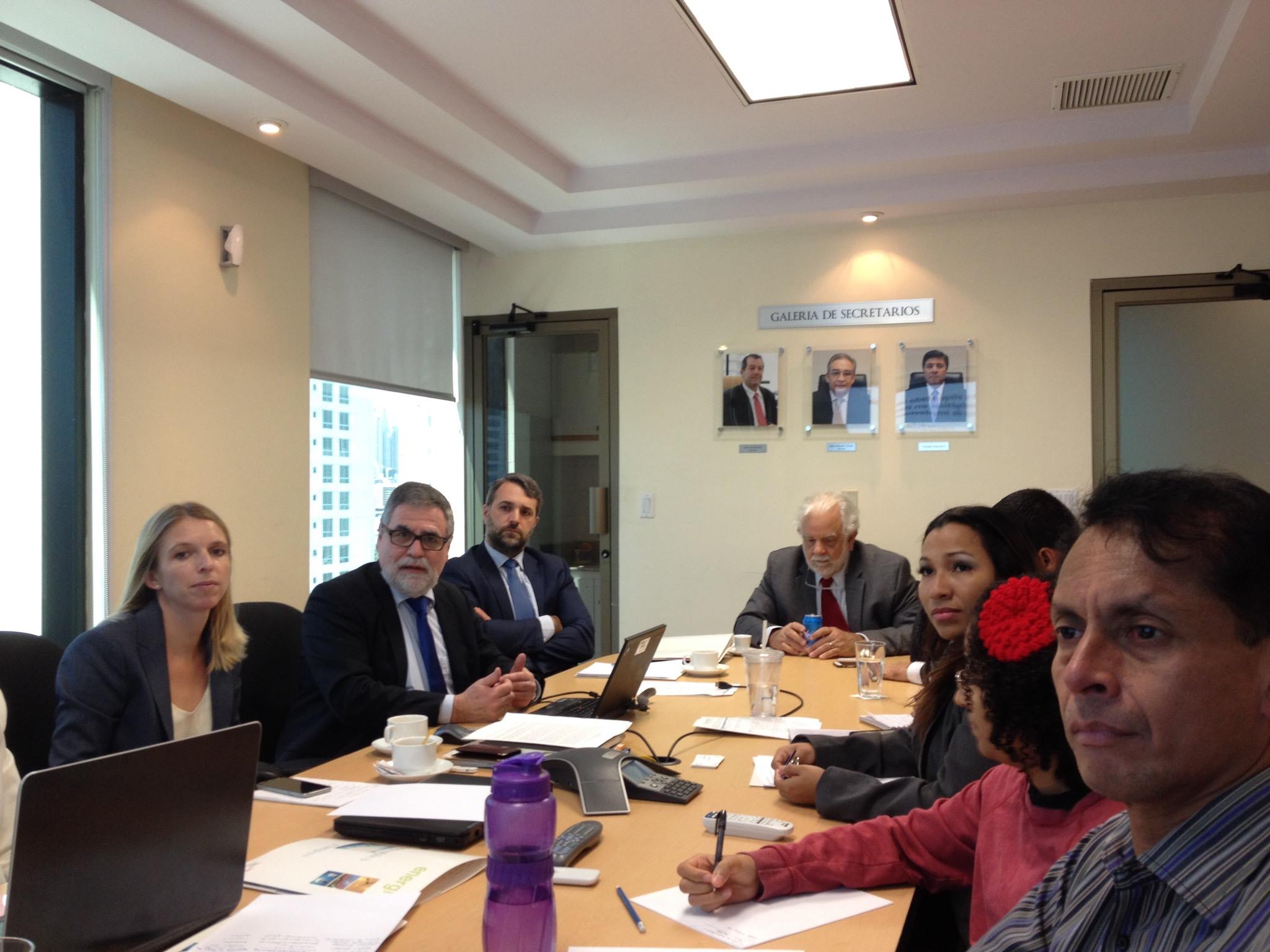Energy Efficiency Standards and Labelling Programme of Panama – Implementation Guide
 By order of the World Bank, the director of Energy-Strategies, Wolfgang F. Lutz, elaborated the Implementation Guide for the Energy Efficiency Standards and Labelling Programme of Panama. The Implementation Guide was prepared in close coordination with the National Energy Secretariat of Panama and all relevant stakeholders who are involved in the Programme.
By order of the World Bank, the director of Energy-Strategies, Wolfgang F. Lutz, elaborated the Implementation Guide for the Energy Efficiency Standards and Labelling Programme of Panama. The Implementation Guide was prepared in close coordination with the National Energy Secretariat of Panama and all relevant stakeholders who are involved in the Programme.
Based on the Energy Efficiency Law of 2012 and its implementing decree of 2013, the Government of Panama has initiated its Energy Efficiency Standards and Labelling Programme, focusing in the first place on household refrigerating appliances and various types of air conditioners. The standards and regulations for these products were elaborated with the participation of all relevant stakeholders, including the Government bodies in charge of standardisation and certification and a committee of experts, established for this purpose.
The consultancy was developed in accordance to the following three phases:
Phase 1 – Regulatory and Institutional Framework, including: (i) Review of the current regulatory framework on the creation, implementation and verification of energy efficiency standards and technical regulations; (ii) Stakeholder map of the public and private entities involved in these processes; (iii) Definition of current prerogatives and general functions conferred upon each public and private entity; (iv) Review of potential institutional loopholes in the spheres of accreditation of test laboratories and certification bodies, including assessments of the Department of Quality Certification of the Ministry of Commerce and Industries, and of procedures of recognition of third countries’ laboratories and certifications.
Phase 2 – Functions and Processes, including: (i) Definition of the specific tasks related to the performance of the general functions of each entity involved in the process of creation, implementation and verification of energy efficiency standards and technical regulations, including the actions required by public entities; (ii) Review of the regulatory framework that applies to every entity involved in the system, in order to review potential obstacles; (iii) Outline of a market surveillance policy, as well as of an evaluation scheme with respect to the verification procedure; (iv) Definition of work processes regarding the different tasks assigned to public entities involved in the process of creation, implementation and verification of standards and technical regulations, including internal and inter-agencies processes.
Phase 3 – Evaluation and Strengthening, including: (i) Outline of a Monitoring, Report and Verification (MRV) system to assess the economic, energy and emission impact of standards and technical regulations; (ii) Outline of a Capacities Strengthening Plan (CSP), including a training programme for the agents involved in the process of creation, implementation and verification of standards and technical regulations, and a communication strategy to inform and raise awareness of consumers and of suppliers and distributors of products.
In addition to recommendations on specific topics, the Guide proposes the implementation of a Integral System of Compliance that includes both conformity assessment and market surveillance procedures. As part of this System, the implementation of an inter-institutional information and communication platform is recommended.
The Implementation Guide was finalised and submitted to the World Bank and the National Energy Secretariat in October 2017. The preparation of the Implementation Guide was supported by Ana Avila, local consultant, and coordinated with the techno-economic analysis of the current energy efficiency standards for refrigerators and air conditioners, prepared by Virginie Letschert, international consultant.
Following a request by the National Energy Secretariat, the consultant also prepared a comparative study on standards and regulations for lighting products in the European Union, the USA and Mexico, with a view on the development of standards and regulations for lamps in Panama. The study covered all types of lamps, both for indoor and outdoor use, and was submitted in December 2018.
For more information please contact Mariano Gonzalez Serrano or Maria Rodriguez de la Rubia Gassol at the World Bank.
May 2019
